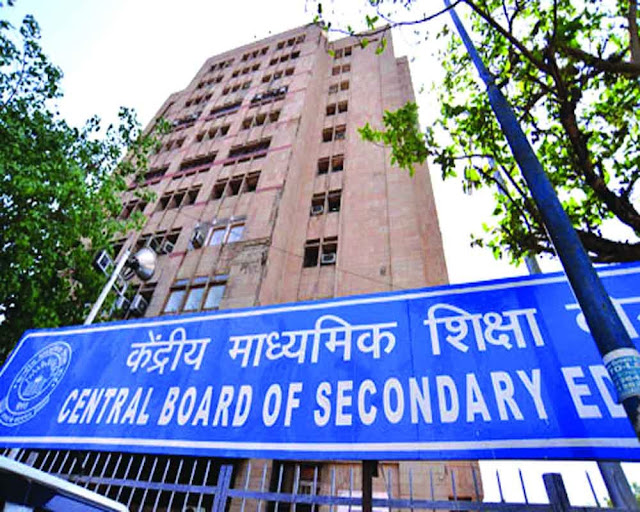The Central Board of Secondary Education (CBSE) on May 10, 2025, at 5:25 PM IST lifted the curtain on its Class 10 results for the 2024–2025 session, delivering relief and jubilation to over 42lakh students across India. With a stellar overall pass percentage of 98.4%,the announcement reaffirms the board’s commitment to academic excellence while spotlighting emerging trends in regional performance, digital access, and future reforms.
Seamless Access in a Hybrid Era
Recognizing the varied digital footprints of students, CBSE has enabled result retrieval through multiple channels. The traditional web portals—results.cbse.nic.in and cbse.gov.in—remain the primary gateways, requiring roll number, date of birth, and a six-digit access code. Meanwhile, the DigiLocker platform and UMANG app offer mobile-friendly alternatives, ensuring results in the palm of your hand. For those in low-connectivity zones,
SMS (text “cbse10<roll_no>” to 7738299899) and IVRS (dial 24300699 with local STD code) provide offline instant access.
This multi-pronged approach underscores CBSE’s pledge to inclusivity in an increasingly digital age.
Trivandrum’s Triumph: South Leads the Way
Once again, Kerala's educational investments have borne fruit, with the Trivandrum region achieving a remarkable 99.75% pass rate (not maximum percentage of a student) in the CBSE Class 10 examinations. This consistent excellence underscores the impact of robust digital literacy campaigns and targeted teacher-training programs in the region. Southern cities like Chennai and Vijayawada also showcased strong performances,reinforcing the academic stronghold of southern India.
Bridging the Urban–Rural Divide
While major urban centers celebrated pass rates north of 97%, rural districts lagged at 94.2%,laying bare the persistent infrastructure gap. In response, CBSE has unveiled plans to distribute subsidized tablets and launch expanded digital-outreach initiatives in underserved regions beginning June 2025. Stakeholders hope these measures will narrow the learning chasm and ensure that geographical location no longer dictates educational opportunity.
Privacy-First Toppers Policy
In a notable departure from past practices, this year’s topper list has been cloaked under a privacy-centric policy: student names will remain confidential unless explicit consent is granted. Early whispers suggest the highest aggregate score stands at 99.6%, secured by a Jaipur student. The move towards anonymity aims to shield high achievers from undue scrutiny and foster a healthier academic environment.
Meanwhile, the board’s merit criteria remain unchanged: a minimum of 33% in each subject and overall, with grace marks judiciously awarded to those marginally below the cutoff.
Support Pathways: Compartments and Re-Evaluations
For the handful who fell short in one or two papers, CBSE’s compartment exams—scheduled July 15 to August 10, 2025—offer a second chance. Schools will soon circulate registration details, and candidates must act within stipulated windows. Additionally, students may request answer-sheet re-evaluations within 21 days of result declaration, subject to a nominal per-subject fee. These safety nets underscore CBSE’s inclusive approach, ensuring no learner is left behind.
Spotlight on Provisional Marksheet
Although digital marksheet are instantly available, students must cross-verify provisional details before final documents are issued in June. Key checks include:
Personal Information: Verify name spellings, date of birth, and school code.
Subject Scores: Ensure marks reflect official
evaluations.
Grace Points: Confirm any supplementary marks have been correctly applied.
Discrepancies should be reported immediately to school authorities or regional CBSE offices to avoid downstream complications in admissions and scholarship processes.
Mapping the Road Ahead: Stream Selection
With the Class 10 chapter closed, the focus shifts to choosing stream combinations for Class 11: Science, Commerce, or Humanities. Experts counsel students to weigh personal interests, aptitude-test outcomes, and long-term aspirations over peer influence. For example, those excelling in mathematics and science may embrace STEM pathways, while individuals passionate about social sciences can explore humanities disciplines. Early engagement with career counselors can demystify options and align academic trajectories with future goals.
Innovations on the Horizon
In a bid to modernize pedagogy, CBSE has announced two flagship reforms for 2025–2026:
1. AI-Powered Personalized Learning:
Adaptive modules will diagnose individual learning gaps via exam analytics and prescribe targeted material, fostering self-paced mastery.
2. Competency-Based Grading for Non-Core Subjects:
Numerical scores will give way to descriptive competency levels in domains like art and physical education, shifting emphasis from rote learning to skill acquisition.These initiatives aim to recalibrate the board’s evaluation framework, nurturing holistic development over traditional score-centric assessments.
As students and parents celebrate a triumphant result season, the CBSE’s evolving digital infrastructure, equity-focused interventions, and forward-looking reforms paint a promising picture for India’s next generation of learners. While the high pass percentage underscores academic resilience, the board’s renewed focus on personalization and inclusivity heralds a transformative era in school education—one where every student, regardless of geography or background, can chart a path toward excellence.
For real-time updates on compartment exams, re-evaluation outcomes, and subsequent policy announcements, students are advised to monitor CBSE’s official portals at results.cbse.nic.in and cbse.gov.in.


Comments
Post a Comment